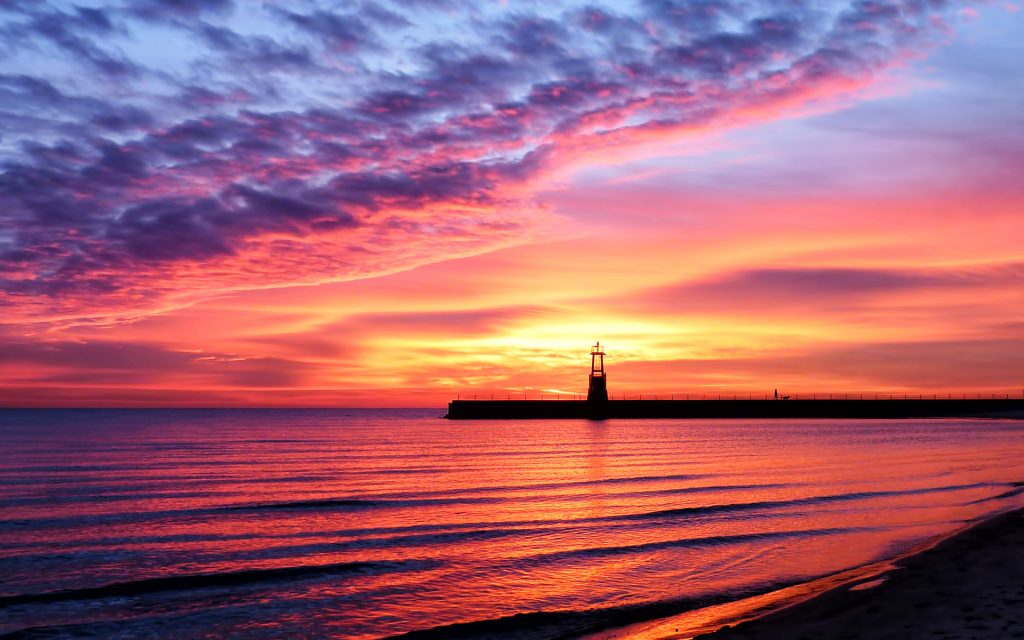
As a science teacher at a classical school, I occasionally hear my humanities students ask, “Why study high school science?” Sometimes, I try to convince these bookworms that a chemistry textbook can be a fascinating read. But since that’s mostly met with incredulity, I like to share a story.
For several summers, my family and I have camped at a small quiet campground on a hill, a lovely park tucked behind a ridge of trees. Beyond the trees and down the hill, lies one of the grandest lakes in the world, Lake Huron. The hill faces west. Every night around 10 pm, the campers leave their card games and campfires to make their way down the hill and congregate on the narrow beach. Though they will soon return and resume their laughter and loud conversation, they are subdued at the beach, as if they have come to a theatre or a church.
“Why?” I ask my listeners, before offering the word “west” as a hint. Yes! These spectators have come to watch a magnificent ball of fire slide effortlessly beneath the horizon of water, leaving behind a wake of glowing colours.
Next, I ask, “Why are they here watching the sunset?” The Psalmist tells us, “The Heavens declare the glory of God and the skies proclaim His handiwork” (19:1). Everyone, believer or unbeliever, witnesses the beauty and experiences the awe of sunsets. No one sits up on the hill behind the ridge of trees and says, “Why bother?”
This takes us back to my students’ original question. Why bother studying science? Well, what would you say to the camper, comfortable in her chair and absorbed in a book, who says, “Why should I go see the sunset?” Both are asking the same question, “What is the benefit?”
A sunset’s splendor can be spectacular, but less conspicuous beauty emanates all around us—as far as an astrophysicist can peer or an atomic physicist can ponder. Science reveals artistry in the ordinary like stirring sugar into coffee or skating across a frozen pond. As we gaze upon marvels, such as a sunset, we are, in fact, beholding the invisible attributes of God – His eternal power and divine nature (Romans 1:19). They were fixed there by the Creator, and they illustrate his power and glory. Correspondingly, He shaped us to appreciate his glory and worship Him. We are all designed to acknowledge the glory of God.
We wouldn’t expect only the campers who are professional photographers to make the trek down the hill. Sure, they may accomplish something tangible. They may earn some money or recognition for their effort. But no one is going to refuse the opportunity to enjoy a sunset for lack of utilitarian reward. Likewise, we should seek opportunities to discover beauty through the study of science.
Someone once observed that science is not something you study; it is something you do. I would add, “Science is something you do, as an act of worship.” The truth of the matter is, there are majestic “sunsets” in and around us, occurring all the time. Our science courses are like the trek down the hill that give us the opportunities to admire them and, in turn, exalt our Creator.
Please enjoy the following excellent examples by Honors Chemistry students, Payton Gilkey, on Ice Skating, and Jake O’Neal, on Aqua Regia.
